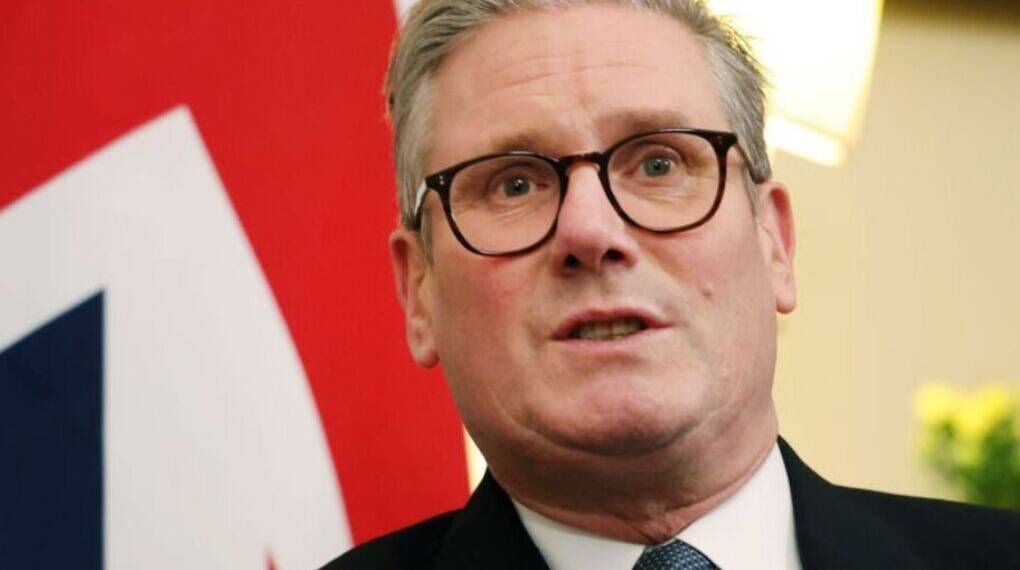In a significant move underscoring the West’s continuing commitment to Ukraine, British Prime Minister Keir Starmer on Friday announced that the United Kingdom would accelerate production of 5,000 Lightweight Multirole Missiles (LMMs) for delivery to Ukraine.
The announcement came after a high-level summit of the “Coalition of the Willing”, which included Ukrainian President Volodymyr Zelenskyy and other Western leaders, convened to discuss measures aimed at bolstering Kyiv’s defences and disrupting Russia’s war machinery.
Speaking at a joint press conference following the summit, Starmer emphasized that the military aid was part of a broader initiative to strengthen Ukraine’s air defence systems ahead of the harsh winter months — a period when Russia is expected to intensify its drone and missile attacks on Ukraine’s energy infrastructure.
“We are strengthening Ukraine’s air defence to protect its civilians and its energy infrastructure,” Starmer said. “I announce today that we are accelerating our UK programme to provide Ukraine with more than 5,000 Lightweight Multirole Missiles.”
The missiles, designed for short- to medium-range precision strikes, are expected to play a key role in countering low-flying targets such as drones, helicopters, and light aircraft — all of which have been central to Russia’s ongoing offensive operations.
Strengthening Ukraine’s Defence as Winter Nears
As the war enters another winter, Western intelligence agencies have warned that Russia could repeat its previous strategy of targeting Ukraine’s power grid, leaving millions without heat or electricity. The British government’s renewed military assistance aims to mitigate that risk by improving Ukraine’s capacity to intercept aerial threats before they can strike critical infrastructure.
During the summit, the leaders also explored ways to supply Ukraine with long-range strike capabilities, which would allow it to target key Russian command and logistics hubs deep inside Russian-held territory. According to diplomatic sources, the discussions included potential joint production initiatives and technology-sharing agreements among coalition members to accelerate weapons manufacturing.
Zelenskyy, who has long sought more advanced Western weapons, expressed gratitude for the renewed commitments but warned that Russia would likely escalate its attacks during the winter.
“We know that Russia will use cold weather as a weapon — to break our people and our will,” Zelenskyy said. “That is why we must not only protect our skies but also cut off the flow of money that fuels Moscow’s war machine.”
Sanctions Push: Targeting Russia’s Energy Revenues
One of the central themes of the summit was the economic front of the war. The “Coalition of the Willing” reaffirmed its determination to phase out Russian oil and gas from the global market by the end of the year — a move intended to cripple the Kremlin’s primary source of revenue.
Starmer stated that the coalition was “united in purpose” to isolate Russia economically and deprive it of the resources needed to continue its invasion. The British Prime Minister commended the recent actions taken by Washington, particularly the sanctions announced by US President Donald Trump against Russia’s two largest energy conglomerates — Rosneft and Lukoil.
“The United States has acted decisively,” Starmer remarked, adding that coordinated sanctions from the UK and EU nations would follow. French President Emmanuel Macron also praised the move, calling it a “turning point” in the collective Western response to Russia’s aggression.
Meanwhile, Zelenskyy reiterated his call for even tougher measures, urging allies to sanction not only Russia’s oil companies but also its “shadow fleet” — a network of vessels used to transport crude oil covertly, bypassing existing sanctions.
“Every ship that carries Russian oil is a weapon financing aggression,” Zelenskyy declared. “We must target the shadow fleet and close the loopholes that allow Russia to keep its war going.”
Putin’s Stern Warning
The sanctions announcement and growing Western coordination provoked a strong reaction from Moscow. Russian President Vladimir Putin, responding to both the new sanctions and reports that Ukraine may soon receive long-range missile systems, warned of “very serious and overwhelming” consequences should any strikes occur deep inside Russian territory.
“Moscow will never bow to external pressure — not from Washington, not from London, and not from any other capital,” Putin asserted in televised remarks. “Any attack on Russian soil will be met with an appropriate, decisive response.”
Putin’s statement underscores the rising geopolitical tension between Russia and the Western alliance. Analysts view the Kremlin’s rhetoric as an attempt to deter NATO nations from further deepening their involvement, but experts also note that the Coalition of the Willing appears increasingly resolute in backing Ukraine to the end.
A New Phase in the Conflict
Starmer’s announcement marks a new phase of military-industrial mobilization within the West, with defence manufacturers in the UK and other NATO countries expected to ramp up production to meet Ukraine’s urgent needs. The decision also cements the UK’s position as one of Kyiv’s most steadfast allies, continuing a legacy of support that began under previous British governments.
With winter fast approaching and the war showing no signs of de-escalation, the combination of military aid, economic sanctions, and political solidarity among Ukraine’s allies represents a concerted effort to tilt the balance of power on the battlefield and weaken Russia’s long-term capacity to wage war.
Whether these measures will force Moscow to reconsider its strategy or escalate the confrontation further remains uncertain — but what is clear is that the West’s resolve is hardening, and the coming months could define the next chapter of the conflict.








